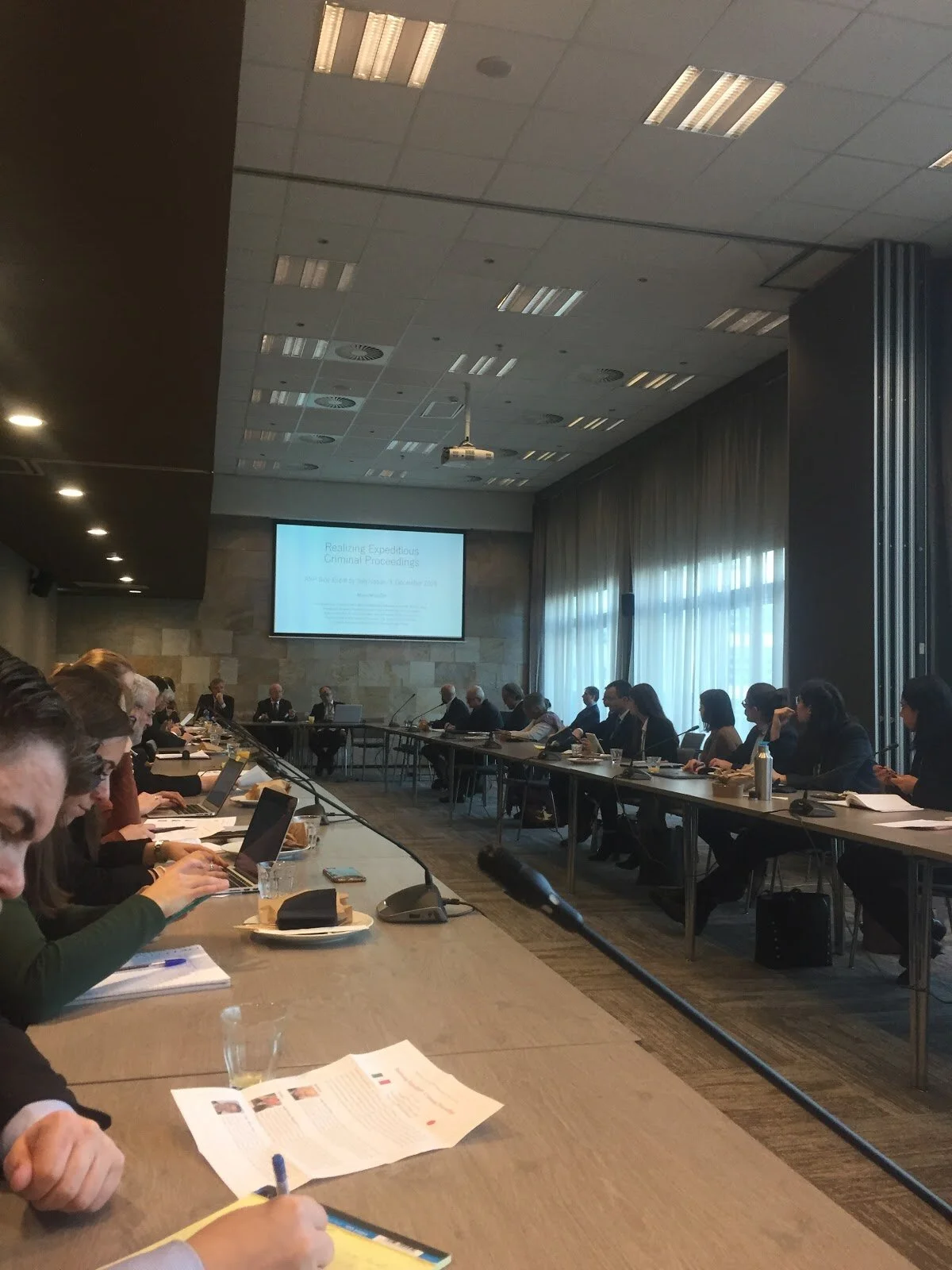18TH SESSION OF THE ASSEMBLY OF STATES PARTIES TO THE ROME STATUTE
Day 2 (3 December 2019)
Name of the Event: Side Event, Realizing Expeditious Criminal Proceedings (co-hosted by Italy and Japan)
Overview by: Keri van Douwen, Junior Research Associate PILPG-NL
Main Highlights:
We have a responsibility to ensure that victims do not wait for justice forever.
The ICC can learn important lessons from domestic systems and practice regarding conducting expeditious and efficient criminal proceedings.
Summary of the Event:
This side event was moderated by Judge Fausto Pocar and contributions came from Judge Motoo Noguchi and Judge Silvio Franz, who discussed the Japanese and Italian justice systems respectively. These perspectives aimed to shed light on the challenges faced by both national and international justice systems in conducting criminal proceedings, while ensuring human rights of those involved. At the same time, much can be learned from domestic systems and practice to achieve the ICC’s goal of efficiency.
First, Judge Motoo Noguchi briefly presented the Japanese legal system and its practice aimed at speeding up trials. For example, it is the prosecution’s strategy to prosecute only sufficiently strong cases. This means that some cases which might have led to a conviction if prosecuted, are dropped. As a result, the prosecution tends to be more efficient. Additionally, efforts are made to ensure that only the best evidence is selected and submitted. A Court rejects evidence that is not absolutely necessary or sufficiently relevant. Japanese Courts prepare a draft judgement as early as practically possible and make the judgement as succinct as possible. Issues not directly necessary to decide the case are not discussed which means that it becomes difficult to have a 500 page judgement. Especially interesting to the ICC has been Japan’s decision to no longer address victims individually but instead consider victims as a single entity, irrespective of the number of victims. In the ICC system, both collective and individual reparations exist. A wide scope of victims may place too much of a burden on the Court and could lead to disappointment to those who are eventually excluded at a later stage.
Second, Italian Judge Silvio Franz presented the Italian legal system and the challenges it faces. In contrast to the Japanese system, the Italian public prosecutor has an obligation to institute criminal proceedings. At the same time, Italian law provides for the reasonable timeliness of proceedings. The statute of limitations and its rules on prescription have been amended seven times in the last fifteen years, which shows the difficulty of addressing the length of prosecutions. The limitation period, currently a maximum of 18 months for preliminary investigations, has led to 1.5 million proceedings being cancelled. Solutions mentioned by Judge Franz include: streamlining of procedures and formalities, computerisation, rationalisation of structures, coverage of staff shortages starting with administrative bodies, control of the activity of the individual magistrates, and modification of some obsolete regulations.
During the discussion, it was mentioned that ICC rules may be too stringent or not flexible enough to allow for speeding up procedures. While it might have a positive effect if judges were to take responsibility of refusing evidence that cannot be established as proof, evidence remains difficult to find. Often, evidence has to be found abroad, the ICC does not have an enforcement mechanism so that the prosecutor relies on state cooperation, which sometimes does not materialize or is very limited. To speed up the international trials, state cooperation is of the essence.

